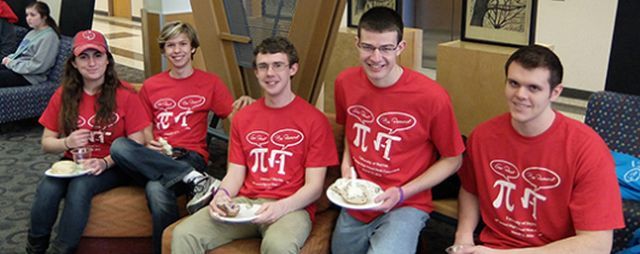Document Type
Article
Publication Date
9-2011
Publication Source
Journal of STEM Education: Innovations and Research
Abstract
The beginning of modern science is marked by efforts of pioneers to understand the natural world using a quantitative approach. As Galileo wrote, "the book of nature is written in the language of mathematics". The traditional undergraduate course curriculum is heavily focused on individual disciplines like biology, physics, chemistry, mathematics rather than interdisciplinary courses. This fragmented teaching of sciences in majority of universities leave biology outside the quantitative and mathematical approaches. The landscape of biomedical science has transformed dramatically with advances in high throughput experimental approaches, which led to the huge amount of data. The best possible approach to generate insights into the biological problem using this huge amount of collected data is to employ the strength of mathematics. Since the people trained only in either biology or mathematics will not be of great help in this pursuit, there is a great demand to prepare trained workforce in the interdisciplinary field of mathematical biology. With this aim, we developed and offered a four hundred level interdisciplinary undergraduate course on mathematical biology at the University of Dayton. The results from exit surveys of the students who participated in the course are promising. They strongly felt their experience was conducive to learning and strongly evoked their interest in the study of science. Here we present the details of the course and its outcome on student enquiry and learning habits.
Inclusive pages
58-66
ISBN/ISSN
1557-5284
Document Version
Published Version
Publisher
ERIC
Volume
12
Issue
5-6
Peer Reviewed
yes
Keywords
Undergraduate Study, Interdisciplinary Approach, Biology, Sciences, Teaching Methods, Higher Education, Mathematics, College Curriculum, STEM Education, Science Education, Science Instruction, Mathematics Instruction, Mathematics Education, Mathematical Models, Computation
eCommons Citation
Usman, Muhammad and Singh, Amit, "A New Undergraduate Curriculum on Mathematical Biology at University of Dayton" (2011). Mathematics Faculty Publications. 5.
https://ecommons.udayton.edu/mth_fac_pub/5
COinS




Comments
By virtue of their appearance in this open-access journal, this article free to use, with proper attribution, in educational and other non-commercial settings.
Permission documentation is on file.